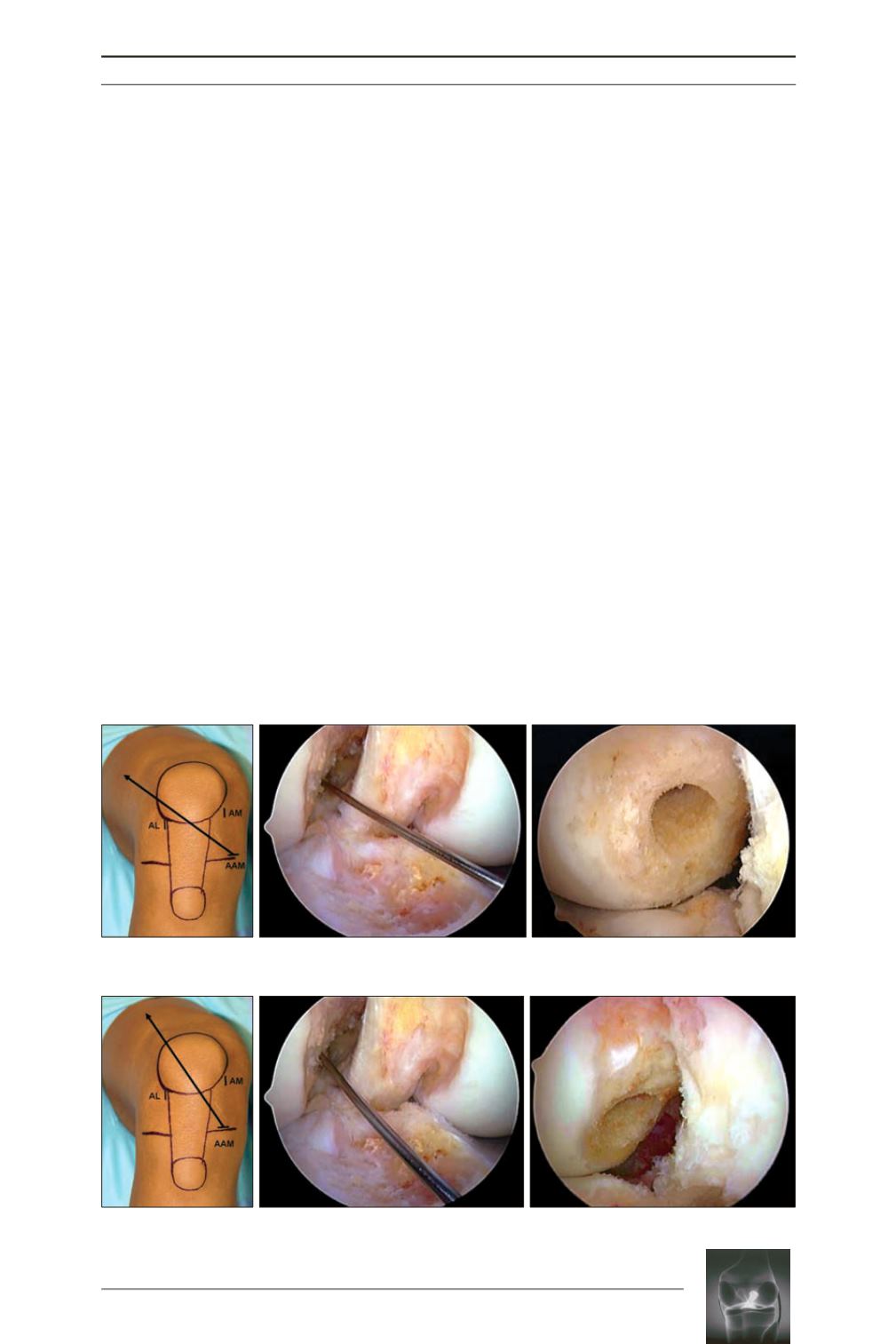

SINGLE-BUNDLE ACL RECONSTRUCTION: HOW I DO IT
141
Proper placement of the AAM portal is one of
the most critical aspects of the technique. The
location of the AAM portal is the major factor
determining the length of the ACL femoral
tunnel. When properly placed, drilling the ACL
femoral tunnel through the AAM portal results
in a longer ACL femoral tunnel compared to
drilling through theAM portal. The preliminary
location for the AAM portal is marked just
proximal to the medial joint line. The final
position for the AAM portal is created under
arthroscopic visualization.
• A more medial placement of the AAM portal
will result in a more perpendicular orientation
of the drill with respect to the lateral wall of
the notch, producing a more circular-shaped
tunnel aperture and a shorter femoral tunnel
(fig. 3).
• Moving the AAM portal more laterally
orients the drill more obliquely with respect
to the lateral wall of the notch and produces a
more elliptically-shaped ACL femoral tunnel
aperture and a longer femoral tunnel (fig. 4).
The location of the AAM portal is adjusted
based on the ACL graft type and femoral
fixation method. For example, if a bone-
patellar tendon-bone ACL graft is used with
interference screw fixation of the femoral bone
block, a 25mm femoral tunnel length will allow
the bone block to be fully seated in the femoral
socket. In this situation, the AAM portal can be
positioned more medially. For hamstring
tendon grafts fixed with a femoral cortical
suspensory fixation device, a longer femoral
tunnel in the 35-45mm range is optimal. In this
situation, the AAM portal is moved more
lateral to achieve a longer femoral tunnel.
ANATOMIC ACL FEMORAL
TUNNEL PLACEMENT
It is widely accepted that when performing an
anatomic ACLR, the ACL femoral tunnel
should be placed within the nativeACL femoral
attachment site. Anatomic ACL femoral tunnel
placement is best achieved by identifying the
Fig. 3
Fig. 4











